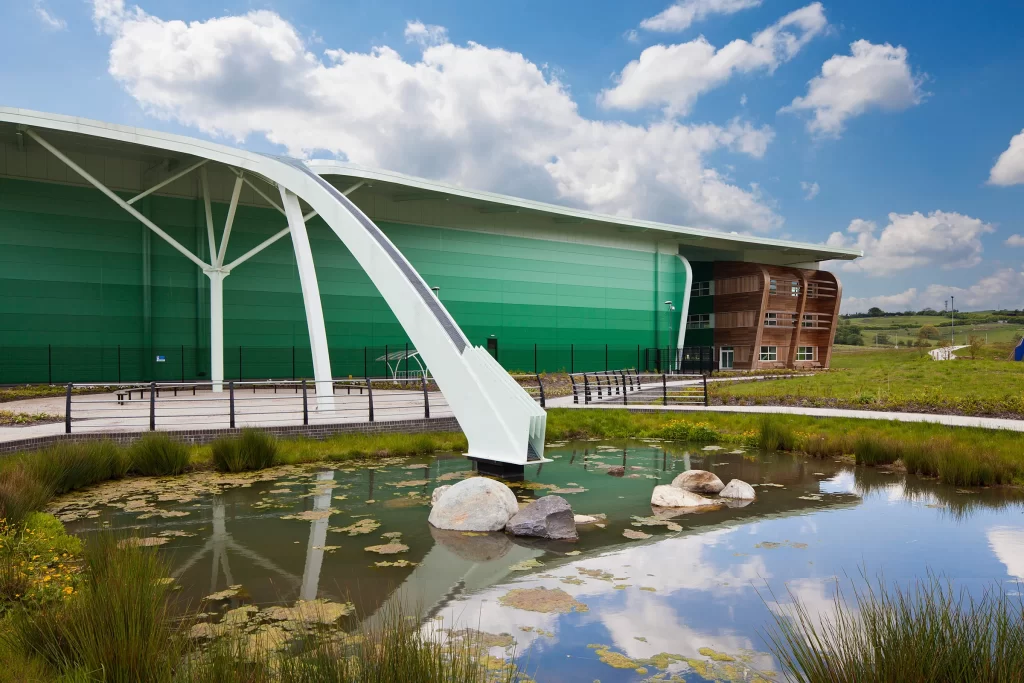
In an era where environmental sustainability is more crucial than ever, various industries are adopting ambitious zero waste to landfill initiatives. These efforts are particularly vital in sectors such as construction and manufacturing, which traditionally contribute significantly to landfill waste.
This article explores effective strategies and real-world applications of zero waste principles across these impactful sectors, demonstrating how businesses can significantly reduce their ecological footprints.
Understanding Zero Waste to Landfill
Zero Waste to Landfill Defined
Zero waste to landfill initiatives focus on eliminating all waste disposals by redirecting all waste streams to more sustainable avenues such as reuse, repair and recycling. The goal is not only to minimize waste but also to maximize the utility of all resources throughout their lifecycle.
Sector-Specific Strategies for Zero Waste to Landfill
1. The Built Environment (Construction and Real Estate)
- Material Reuse and Recycling: Implementing comprehensive recycling programs and promoting the reuse of building materials during demolitions and renovations reduces waste significantly.
- Design for Deconstruction: Designing buildings with disassembly in mind allows materials to be easily separated and reused at the end of their life.
- Supplier Selection: Partnering with suppliers who prioritize recyclable and reusable materials supports broader waste reduction goals.
2. Manufacturing
- Process Optimization: Enhancing efficiency in production processes can drastically reduce waste generation. Techniques like lean manufacturing can identify and eliminate waste before it occurs.
- Extended Producer Responsibility (EPR): Implementing EPR programs encourages manufacturers to take responsibility for their products throughout the lifecycle, including post-consumer stages, promoting recycling and reuse.
- Innovative Waste Management Technologies: Investing in new technologies for waste sorting and recycling can transform waste into valuable resources, thus diverting it from landfills.
Challenges and Solutions in High-Impact Sectors
Navigating Obstacles
- Economic Viability: The initial costs associated with implementing zero waste to landfill strategies can be high. However, long-term savings from reduced disposal fees and material costs can offset these expenses.
- Regulatory Compliance: Staying abreast of and complying with local and international waste management regulations can be challenging. Continuous training and legal advisement are crucial.
- Cultural Shift: Cultivating a zero-waste culture within traditionally wasteful industries requires significant effort. Continuous education and incentives can drive behavior change among stakeholders.
Success Stories: G-Park Blue Planet
A Model for Zero Waste to Landfill in Construction

One exemplary case of achieving zero waste to landfill in the construction sector is the G-Park Blue Planet project in Chatterley Valley. This development not only set a benchmark in eco-friendly building practices but also successfully implemented strategies aimed at zero waste to landfill. Here’s how they achieved it:
- Comprehensive Waste Management Strategy: From the outset, the project was designed with waste minimization in mind. The use of recycled materials and the implementation of a strict waste sorting protocol ensured minimal waste generation.
- Innovative Waste Solutions: The site employed advanced waste processing technologies that maximized material recovery for recycling and reuse. This included the use of onsite waste sorting facilities and partnerships with local recycling firms to ensure that all possible materials were recycled.
- Employee and Contractor Training: Ensuring that all personnel were fully trained in waste management practices was key to the project’s success. This training ensured high compliance with the site’s waste management protocols, significantly reducing contamination and improving recycling rates.
This project not only met its zero waste to landfill targets but also demonstrated leadership in sustainable construction practices, aligning with the rigorous standards set by BREEAM and serving as a blueprint for future developments in the industry.
Conclusion: Building a Sustainable Future
Conclusion: Leading the Way to a Sustainable Future
As industries continue to embrace zero waste to landfill initiatives, the lessons learned from projects like G-Park Blue Planet provide valuable insights into the practicalities of waste reduction. These strategies not only help businesses meet regulatory requirements and reduce environmental impact but also enhance operational efficiencies and corporate reputations.
Call to Action
Is your sector still contributing to landfill waste? Explore how adopting zero waste to landfill strategies can not only help the environment but also improve your business. Join industry leaders in making a commitment to a sustainable future and redefine what is possible in waste management.

Pingback: Introduction: Managing Waste in the Construction Industry - WeGoZero